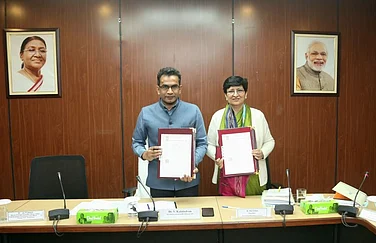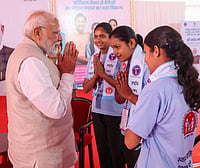There’s a hope for diabetics. A new Indian study has found that nearly one in three adults with Type 2 diabetes can achieve remission through intensive lifestyle interventions — including diet modification, exercise, psychological support, and medical guidance.
Researchers from the Freedom from Diabetes Clinic and Diabetes Research Foundation, India, reported that 31% of 2,384 participants achieved remission without the use of glucose-lowering medication. The findings were published on October 22, 2025, in the open-access journal PLOS One.
According to the study published in the PLoS One, remission was most likely among individuals who were below 50 years of age, had a short duration of diabetes of six years or less, and had never taken diabetes medication (drug-naïve).
Participants who already maintained good sugar control with HbA1c levels below 7%, achieved more than 10% weight loss, regularly practised fasting, and successfully lowered their insulin resistance were also more likely to achieve remission.
The retrospective analysis included adults with Type 2 diabetes who participated in a one-year online intensive lifestyle program between May 2021 and August 2023. The intervention, delivered through a mobile application, featured a personalised plant-based diet, structured physical activity, group therapy and psychological counselling, and continuous medical supervision by a six-member care team.
Overall, 744 participants (31.2%) achieved remission — defined as maintaining glycated haemoglobin (HbA1c) levels below 48 mmol/mol for at least three months without medication.
Those who achieved remission showed markedly greater improvements across several key health parameters compared with those who did not. They recorded an average weight reduction of 8.5% compared to 5.2% in the non-remission group, and a similar trend was seen in body mass index (BMI) reduction at 8.6% versus 5.2%.
Improvements in blood sugar control were also more pronounced, with HbA1c levels dropping by 15.3% compared to 12.4%. Additionally, participants in the remission group demonstrated a 26.6% reduction in fasting insulin levels and a 37.3% decrease in insulin resistance, significantly outperforming the corresponding 11.4% and 19.7% reductions seen in those who did not achieve remission.
With over 72 million Indians affected by Type 2 diabetes, the findings hold major public health implications. While lifestyle-based remission has been demonstrated in Western studies, Indian-specific data have been scarce.
“Our research demonstrates that nearly one-third of individuals with Type 2 diabetes can achieve remission through a scientifically designed, culturally tailored, and structured lifestyle intervention,” said Dr. Pramod Tripathi, lead author of the study “Type 2 diabetes remission and its predictors in an Indian cohort: A retrospective analysis of an intensive lifestyle intervention program.”
The researchers noted that early and intensive lifestyle interventions could fundamentally alter the diabetes trajectory for many Indians. However, they also cautioned that the study’s retrospective design, absence of a control group, and exclusion of non-follow-up participants might introduce selection bias.



























